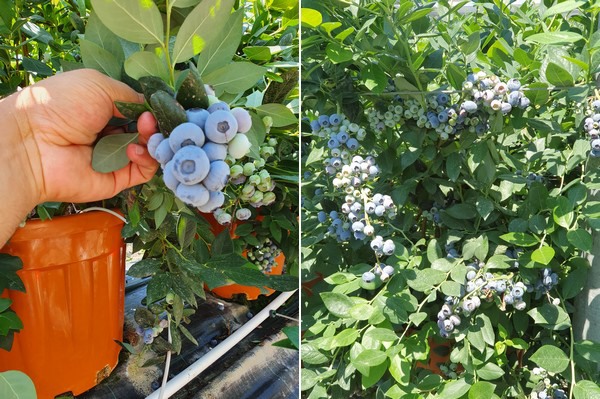It looks to be another positive Turkish blueberry season, although the yield might be below expectations, says Halil Oymak of Turkish blueberry exporter Fall Creek: "The Turkish blueberry season looks very good this year. The winter months were not cold and there was no excessive rainfall in the spring. That's why the fruit quality is very good. Only in the autumn period temperatures were above normal. For this reason, a similar situation to what was experienced in Peru seems to have occurred here. The yield may be below expectations."
The increase in blueberry acreage has slowed down, but is still going very strong, Oymak explains. "Data shows that blueberry planting areas have grown by 50% compared to last year. This rate was 100% in previous years. High inflation in the country and difficulty in accessing loans slowed down the investments for the blueberry industry. But, this year we see that domestic consumption has increased significantly. In addition, the export rate doubled compared to last year."

Blueberries are relatively new compared to other Turkish staple products. However, Oymak states that word is getting around and demand for these blueberries is significantly increasing: "Suppliers and markets around the world are turning to new manufacturers and new production areas every day. Turkey has historically been a major producer for vegetables and fruits. Products are sent from Turkey to all countries of the world, including Europe and Russia. For this reason, after it was heard that blueberry production had started, serious demand for the product started to appear. We know that Turkish blueberries were exported to Far Eastern countries, Russia and European countries this year."
Meanwhile, according to Oymak, Turkish produce growers see an opportunity in the cultivation of blueberries. "Turkey is a productive country and as such, agricultural production is very common. From time to time, growers look for alternatives to the products they are already producing. The blueberry is one of these fruits. Recently, growers and investors who have seen that the Turkish blueberry is sellable have begun to show more interest in the product. The industry will continue to rise rapidly in the coming days, thanks to the decrease in interest rates and subsidies programs."

If everything comes together for the northern parts of Turkey, this could be the best Turkish blueberry season to date: "This year, growers in the south of Turkey had a better season compared to last year. Last year, excessive rainfall caused deterioration in fruit quality and made sales difficult. Last year's events added a lot of experience to producers. This year, growers in the south paid great attention to their products and were rewarded with quality fruit. As a result, sales were good. If the growers in the north can have a season similar to this, we can say that this year will be the best season so far," Oymak concludes.
For more information:
Halil Oymak
Fall Creek EMEnA
Tel: +90 5461591234
Email: [email protected]
www.fallcreeknursery.com
